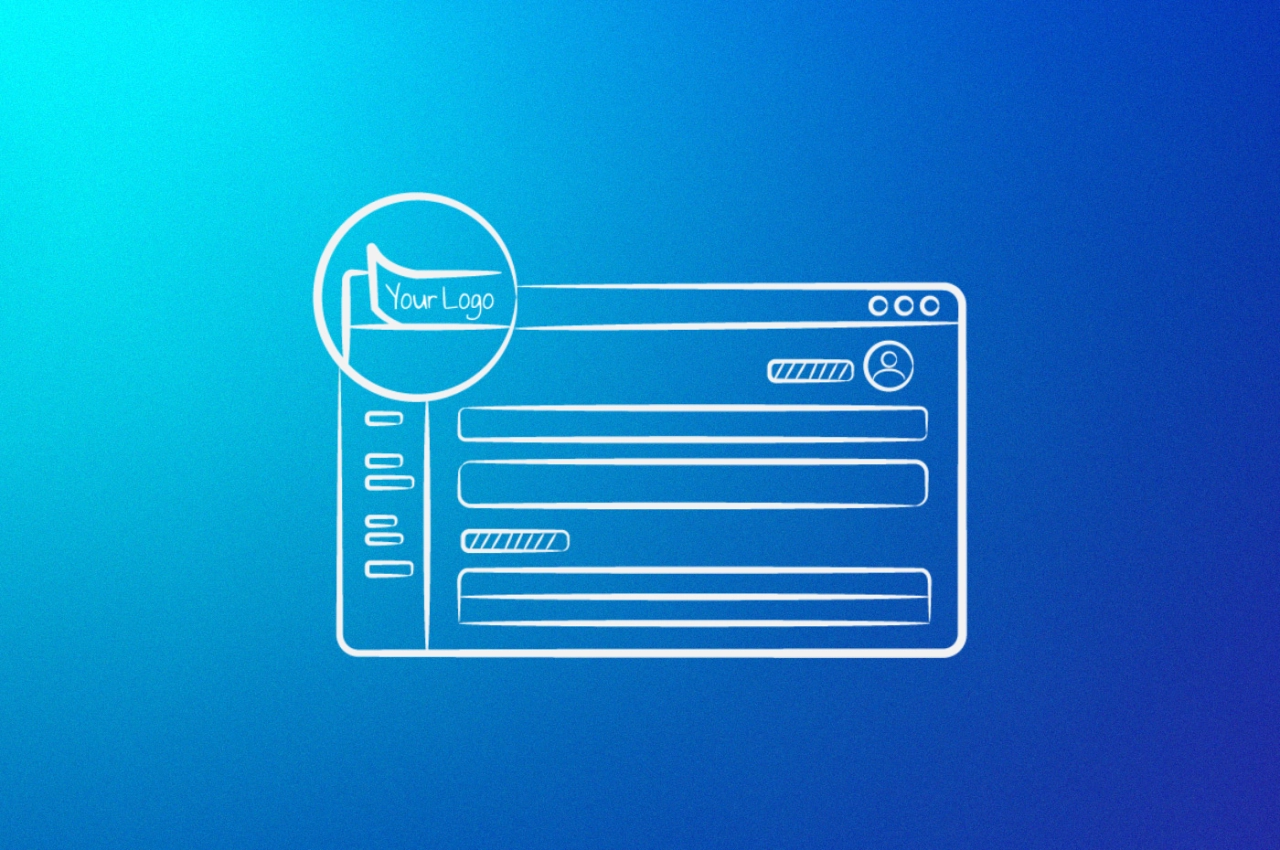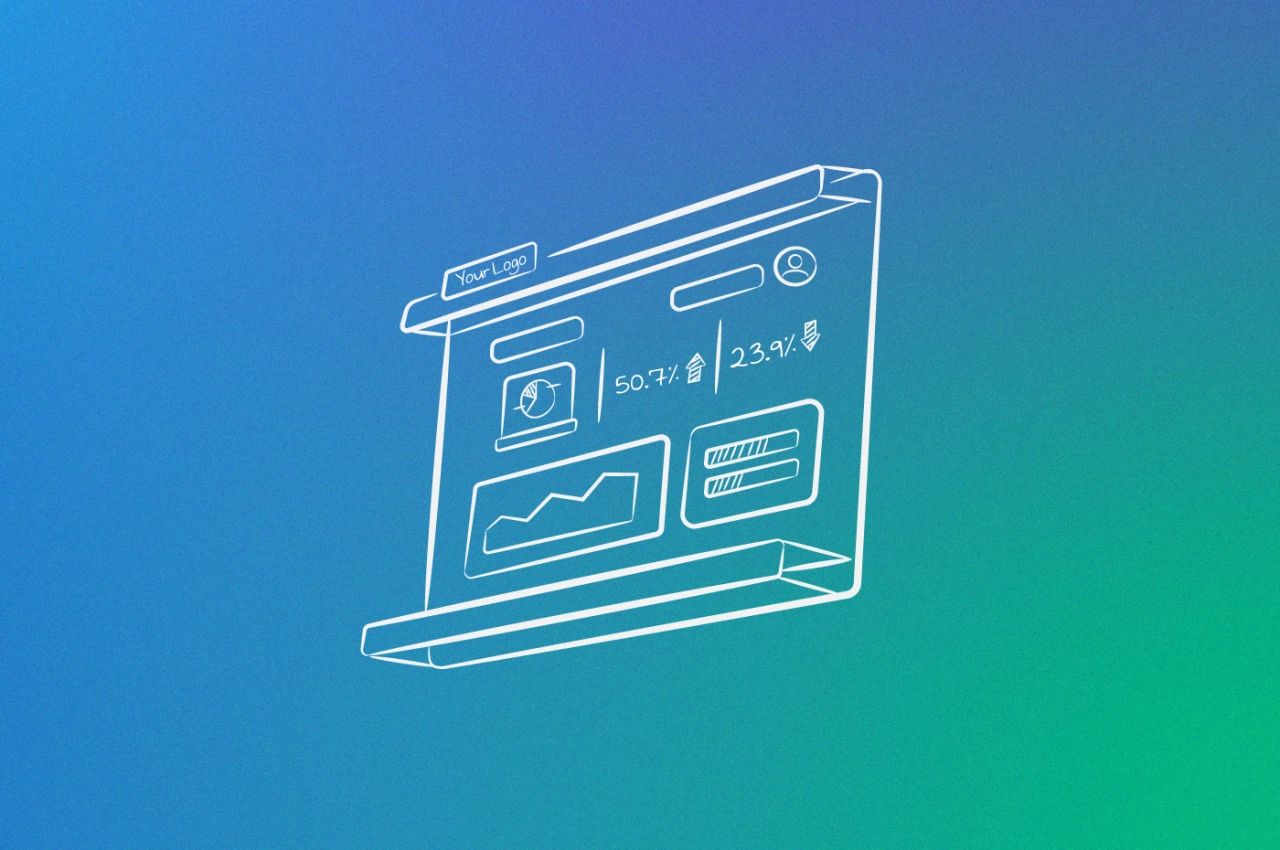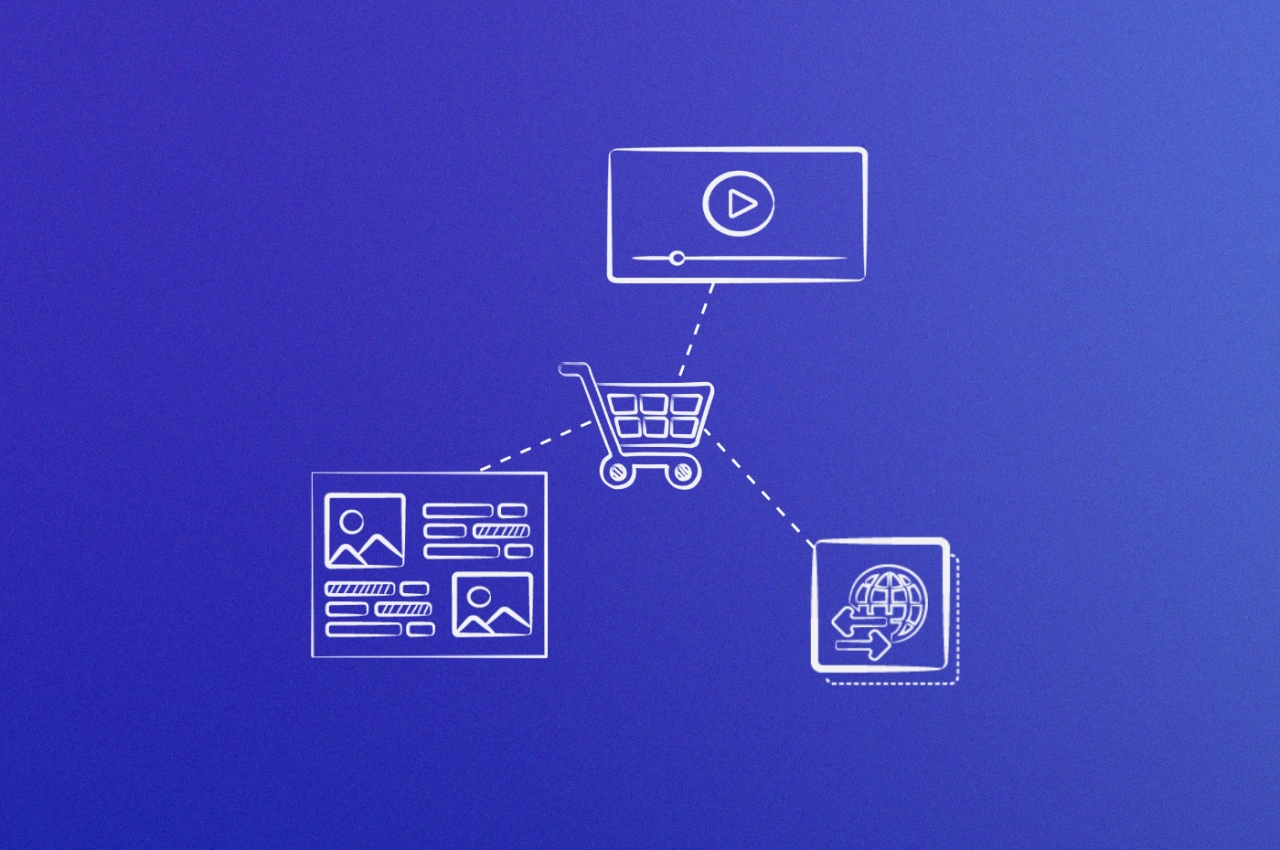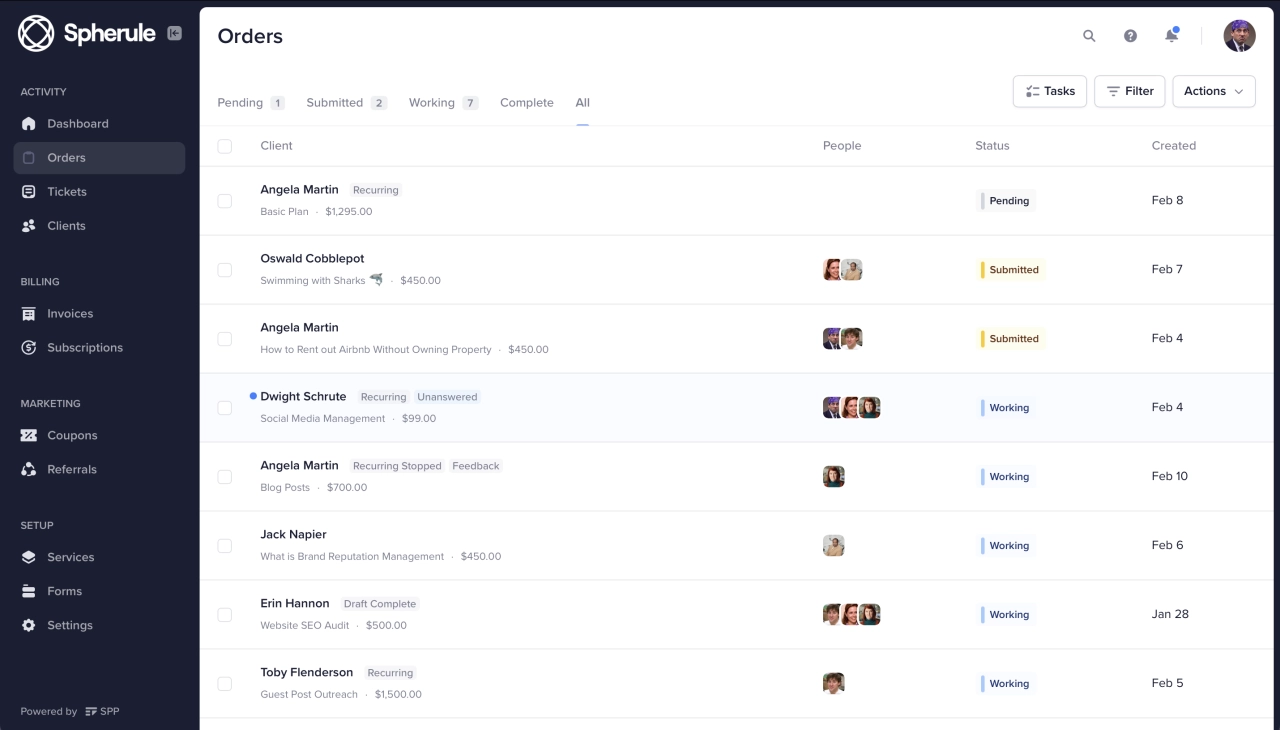- White labeling is a business practice where a company uses another company's product or service and applies its own branding to it.
- White labeling allows companies to offer high-quality solutions without investing in long development or production processes.
- The benefits of white labeling include increased brand exposure, reduced costs, and risk for both the provider and the buyer.
White labeling can be a very lucrative business—both for white label companies and for white label partners. What does it mean—and why would anyone use white label products or services?
In this article, we’re taking a brief, but comprehensive look at white labeling as a viable and beneficial option for a wide range of companies, especially those starting an agency business.
White labeling definition
White labeling is the practice of using a product/service created by a company, and applying another company’s branding to it. The goal of white labeling is to allow the purchasing company to display its own identity on a product or service that was not originally produced by them. It enables companies to get started quickly with a branded solution without having to invest in long development or production processes.
Benefits of white labeling
White labeling offers numerous benefits for businesses looking to expand their offerings and enhance their brand.
Here are some key advantages of choosing a white label solution:
Increased revenue streams: By incorporating white label products or services, businesses can diversify their product lines and attract new customers, leading to additional revenue streams.
Reduced costs: White labeling eliminates the need for significant investments in research, development, production, and marketing. This reduction in overhead costs can significantly boost profitability.
Improved brand recognition: Offering high-quality white label products under your own brand name can enhance brand recognition and foster customer loyalty.
Increased efficiency: White labeling allows businesses to focus on their core competencies while outsourcing non-core functions, leading to greater efficiency and productivity.
Competitive advantage: By providing unique and high-quality white label products, businesses can differentiate themselves from competitors and gain a competitive edge in the market.
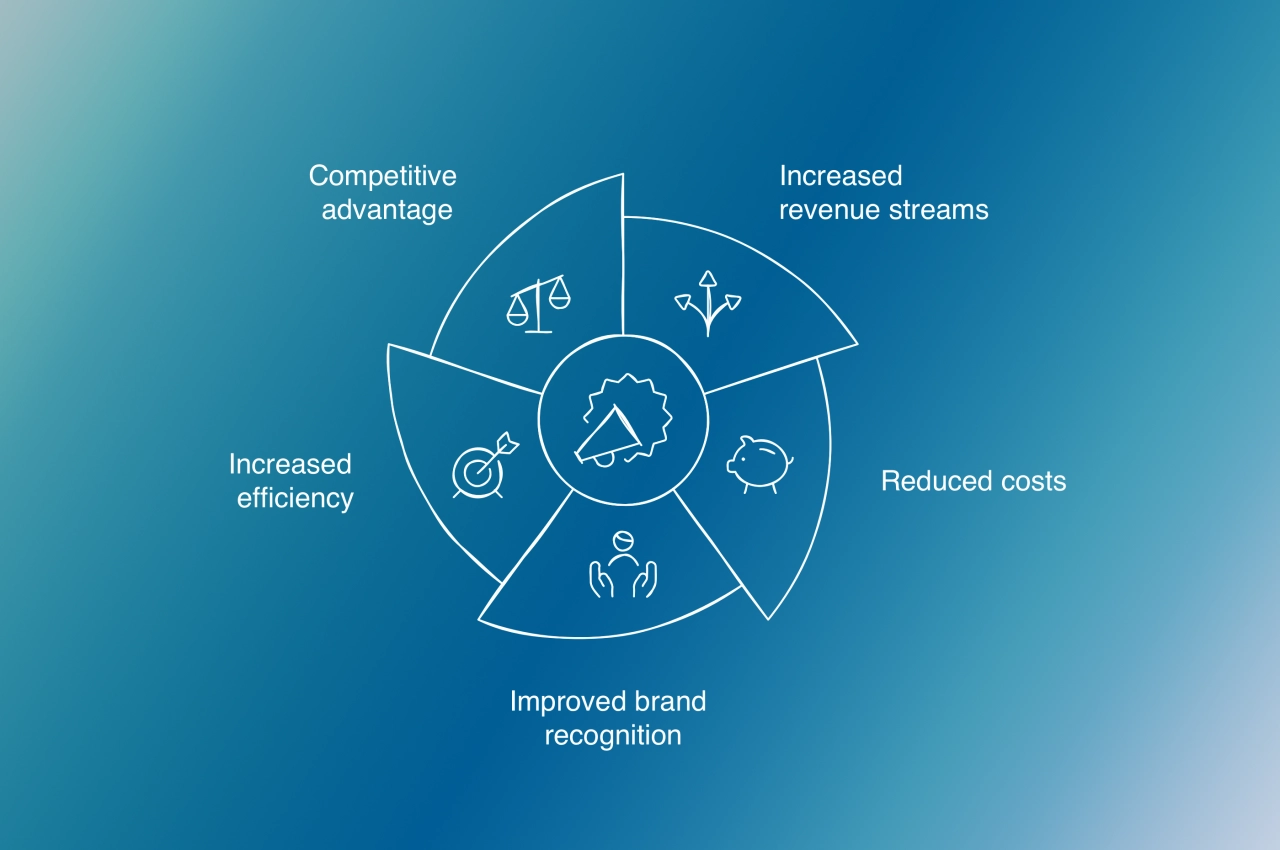
How white labeling works
White labeling is a strategic business practice where one company creates a product or service, and another company rebrands it as their own.
Here’s how the process typically unfolds:
Research and selection of a white label offering: Businesses start by identifying and evaluating potential white label offers. Key factors to consider include service quality, reputation, and pricing.
Customization of the service: The chosen company customizes the service to align with the business’s brand identity.
Integration with tools: Depending on the white label offering, it might be possible to integrate it into your existing tech stack to make reselling it automated.
Sales and marketing: The business markets and sells the service under its own brand name, leveraging its existing sales channels and marketing strategies to reach customers.
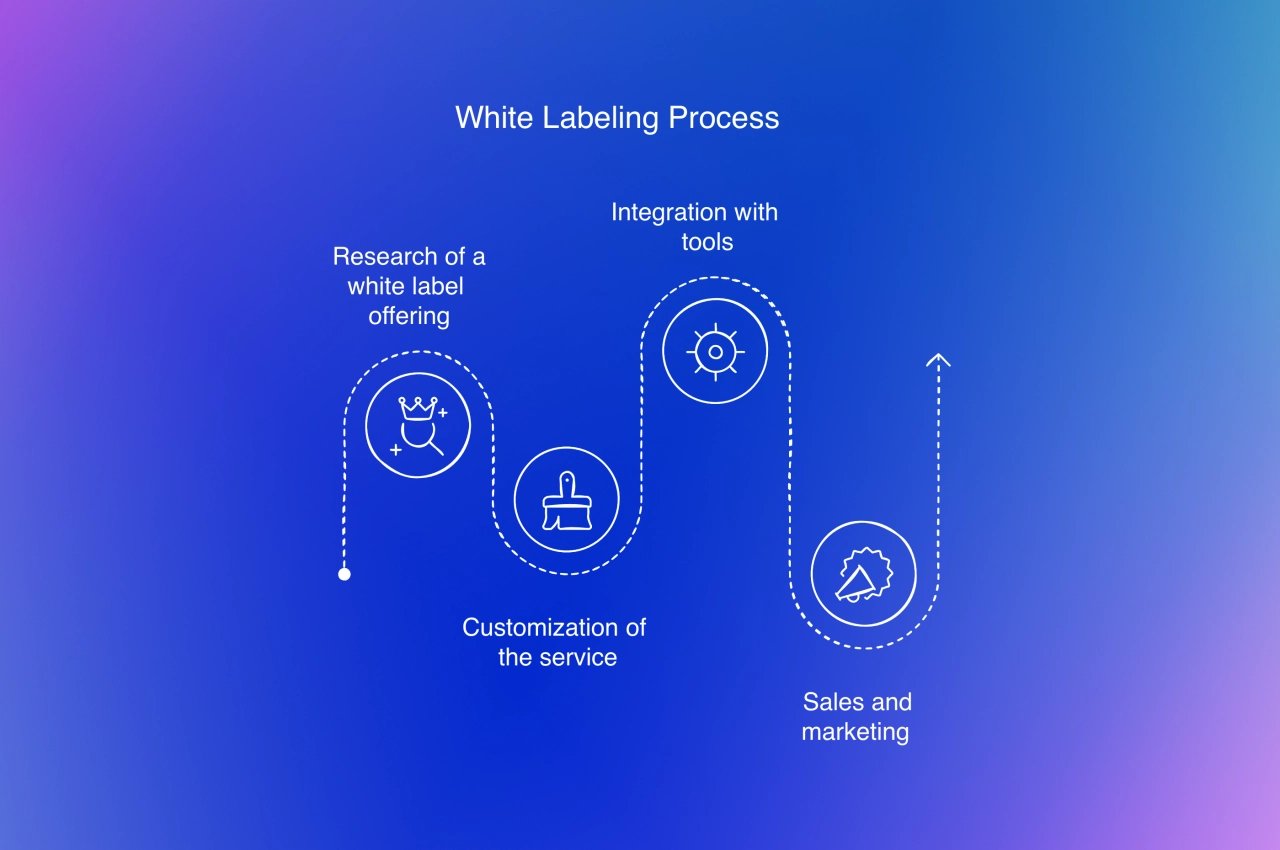
Advantages of white label services
White labeling can be used by all sorts of products, from software and technology to consumer packaged goods (CPG). It is most commonly used for web-hosting companies, marketing automation tools, enterprise software applications, headless architecture, and eCommerce platforms.
For those who build white label solutions, the advantages include:
increased brand exposure and recognition.
the option to reach more customers who would’ve otherwise built their own solution.
more likelihood that enterprise-level companies buy their products
For those who buy white label solutions and brand them as their own, the advantages include:
the ability to create and deliver a product to the market quickly
reduced costs associated with developing and maintaining their own products from scratch
reduced risk, since they can assess the quality of the white label product before making a purchase decision
a stronger brand, which, in turn, can increase their trustworthiness and reputation
if going through a rebranding process that aims to offer more services, white labeling can help you decrease your go-to-market (GTM) timeline
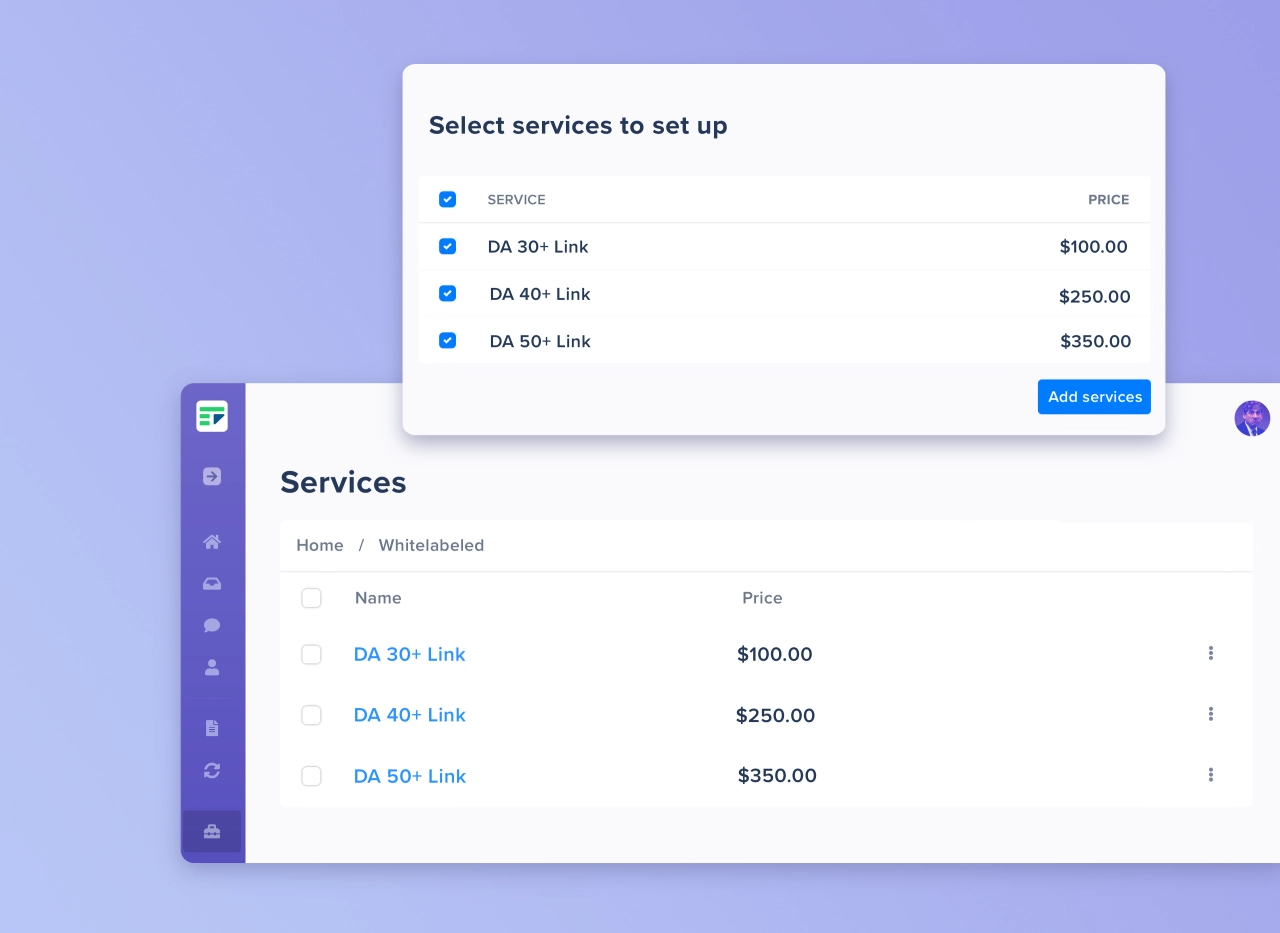
Resell your services and generate more revenue.
All in all, white label products and services can be a win-win for everyone: brands, white label providers, and end customers.
Choosing a white label supplier
Selecting the right white label supplier is crucial for the success of your white label services.
Here are some key factors to consider:
Service quality: Ensure the supplier has a proven track record of delivering services their clients are happy with.
Reputation: Research the supplier’s reputation within the industry. Look for reviews, testimonials, and case studies to gauge their reliability.
Pricing: Compare pricing structures to ensure you get the best value for your investment without compromising on quality.
Onboarding: Evaluate the supplier’s customer service and support. Make sure they help you get set up with your white label services.
4 white label services examples
Although very common in the software industry, white label isn’t a term that belongs exclusively to it. Tangible products, as well as services, can be white labelled. Essentially, if one product can be made by one company and rebranded by another, it can also be white labeled.
Here are four of the best white label services you can offer yourself.
SEO (Search Engine Optimization)
White label SEO services are usually offered to agencies to help other companies boost their ranking on search engines. When an agency doesn’t have the capacity to provide white label SEO themselves, they can offer them via a partner instead.

For instance, if you are an online marketing agency and all of your SEO pros are busy working on other projects, but a client requests you to help them with their SEO, you can consider partnering up with a white label provider. This will allow a niche SEO agency to sell their services under another brand’s name, while the customer-facing agency doesn’t have to invest in hiring and training new SEOs.
It is crucial to have established quality control measures to ensure that white label SEO services meet high standards. This not only improves product offerings but also provides a competitive advantage in the market.
White label digital marketing services and white label social media agencies are also quite common because the demand for such skills is at an all-time high. Plus, white label versions like the ones mentioned here can also allow a lot of people to start a business easily, with minimum risks.
Content Writing
White label content writing services work similarly to SEO white label. Essentially, an agency that doesn’t have the capacity (or the focus) to provide content writing services will outsource the task to another company—a white label content writing agency.

For instance, if you have an SEO agency and you need to help your clients with content production, you might choose a white label content agency to help you deliver all the needed content.
Google Business Profile Management
Google Business Profile management can be complex. But with a white label provider, it’s much easier to manage profiles on Google My Business and ensure that they are optimized for maximum visibility and conversions. Some agencies offer this service to their customers by using specialized Google Business Profile management white label services.

Link building
For most companies, building links is not something they want to do in-house because there’s a lot that can go wrong. And this is why they prefer to hire an experienced link building agency for the job. With years’ experience and a vast network of partners, they are able to generate high-quality links that improve rankings.

It is worth mentioning that in all of these examples, the white label company will not act as an external provider, but become an integral part of the team for the duration of the project. White labeling aims to make the process as seamless and hassle-free for the client as possible.
In the end, a customer should never feel like they are handed off two another agency, but by a single entity that manages a thorough, well-executed process.
White labeling vs. private labeling
While white labeling and private labeling are often used interchangeably, they have distinct differences:
White labeling: This involves using a product or service created by one company and applying another company’s branding to it. White label products are typically generic items produced in large quantities and can be customized to a certain extent.
Private Labeling: This involves creating exclusive products tailored specifically for one retailer or brand. Private label products are unique, tailored to the retailer’s specifications, and often come at a higher cost than white label products.
Key differences: White label products are generic and have limited customization options, while private label products are unique and offer more flexibility in terms of branding and packaging. White label products can be sold by multiple companies, whereas private label products are exclusive to one company.
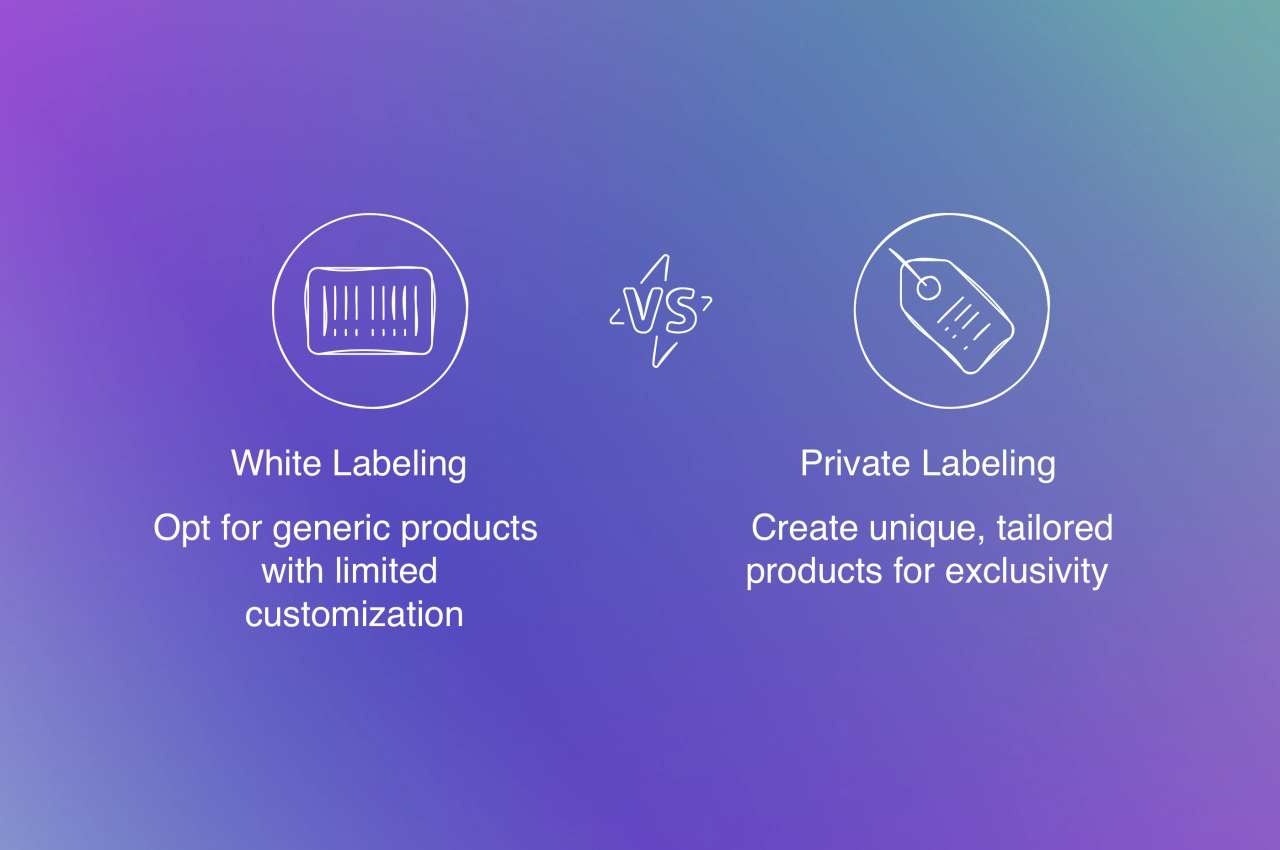
Frequently asked questions about white labeling
What does it mean to white label something?
When you white label something, you make it easy for other brands to acquire it and use it as part of their own offer. For example, if you have an agency that helps collect information about leads, a digital marketing agency could buy that from you and use it for their customers, as if it was an in-house product. They can add their brand name, customize the colors, and make the white label software an integral part of their agency’s deal with their customers.
Is white labeling ethical?
Yes, white labeling is ethical. It is a practice that gives businesses the opportunity to access quality products or services without having to reinvent the wheel. Moreover, it allows them to offer better services to their customers, while still retaining control over the process.
Is white labeling profitable?
Done right, white-labeling can be profitable. It is a way for businesses to offer services that they don’t have the resources or expertise to provide in-house. By outsourcing, they can keep their customers happy without over-exerting their teams or dealing with the costs associated with training and hiring new staff.
What is a white label client?
A white label client is a customer who buys products or services from another company and rebrands them as their own. The client can then make use of those services as if they were their own to increase their customer satisfaction, decrease their payroll costs, and improve their bottom line.
Embrace the white label business model
In conclusion, white label solutions offer a win-win solution for businesses of all sizes. By leveraging high-quality products or services from another company, agencies can drive revenue, improve their own branding, increase their profit margins while also reducing costs. As demand for white label solutions continues to rise, it’s clear that this practice is here to stay.
